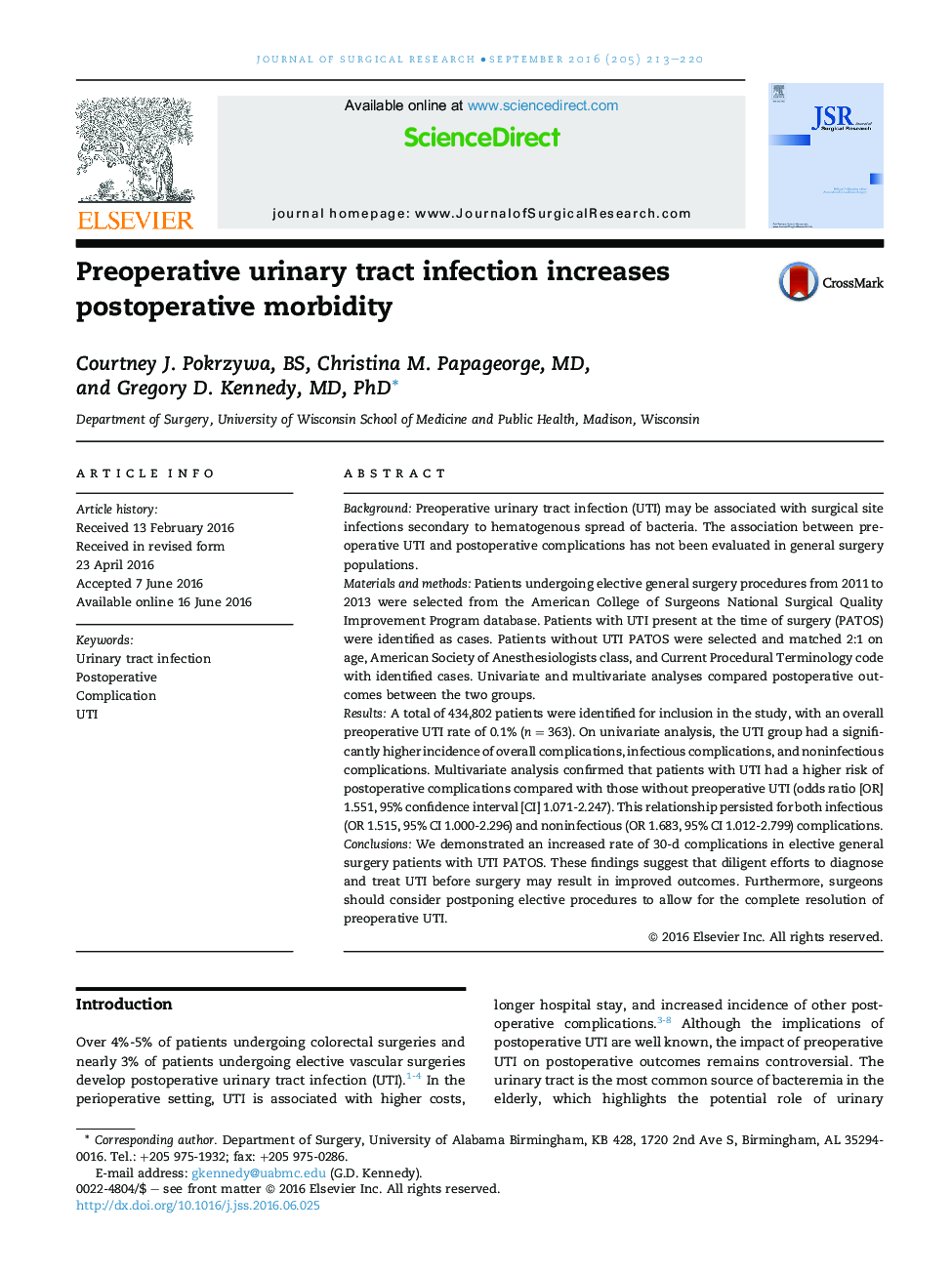| Article ID | Journal | Published Year | Pages | File Type |
|---|---|---|---|---|
| 4299323 | Journal of Surgical Research | 2016 | 8 Pages |
BackgroundPreoperative urinary tract infection (UTI) may be associated with surgical site infections secondary to hematogenous spread of bacteria. The association between preoperative UTI and postoperative complications has not been evaluated in general surgery populations.Materials and methodsPatients undergoing elective general surgery procedures from 2011 to 2013 were selected from the American College of Surgeons National Surgical Quality Improvement Program database. Patients with UTI present at the time of surgery (PATOS) were identified as cases. Patients without UTI PATOS were selected and matched 2:1 on age, American Society of Anesthesiologists class, and Current Procedural Terminology code with identified cases. Univariate and multivariate analyses compared postoperative outcomes between the two groups.ResultsA total of 434,802 patients were identified for inclusion in the study, with an overall preoperative UTI rate of 0.1% (n = 363). On univariate analysis, the UTI group had a significantly higher incidence of overall complications, infectious complications, and noninfectious complications. Multivariate analysis confirmed that patients with UTI had a higher risk of postoperative complications compared with those without preoperative UTI (odds ratio [OR] 1.551, 95% confidence interval [CI] 1.071-2.247). This relationship persisted for both infectious (OR 1.515, 95% CI 1.000-2.296) and noninfectious (OR 1.683, 95% CI 1.012-2.799) complications.ConclusionsWe demonstrated an increased rate of 30-d complications in elective general surgery patients with UTI PATOS. These findings suggest that diligent efforts to diagnose and treat UTI before surgery may result in improved outcomes. Furthermore, surgeons should consider postponing elective procedures to allow for the complete resolution of preoperative UTI.
